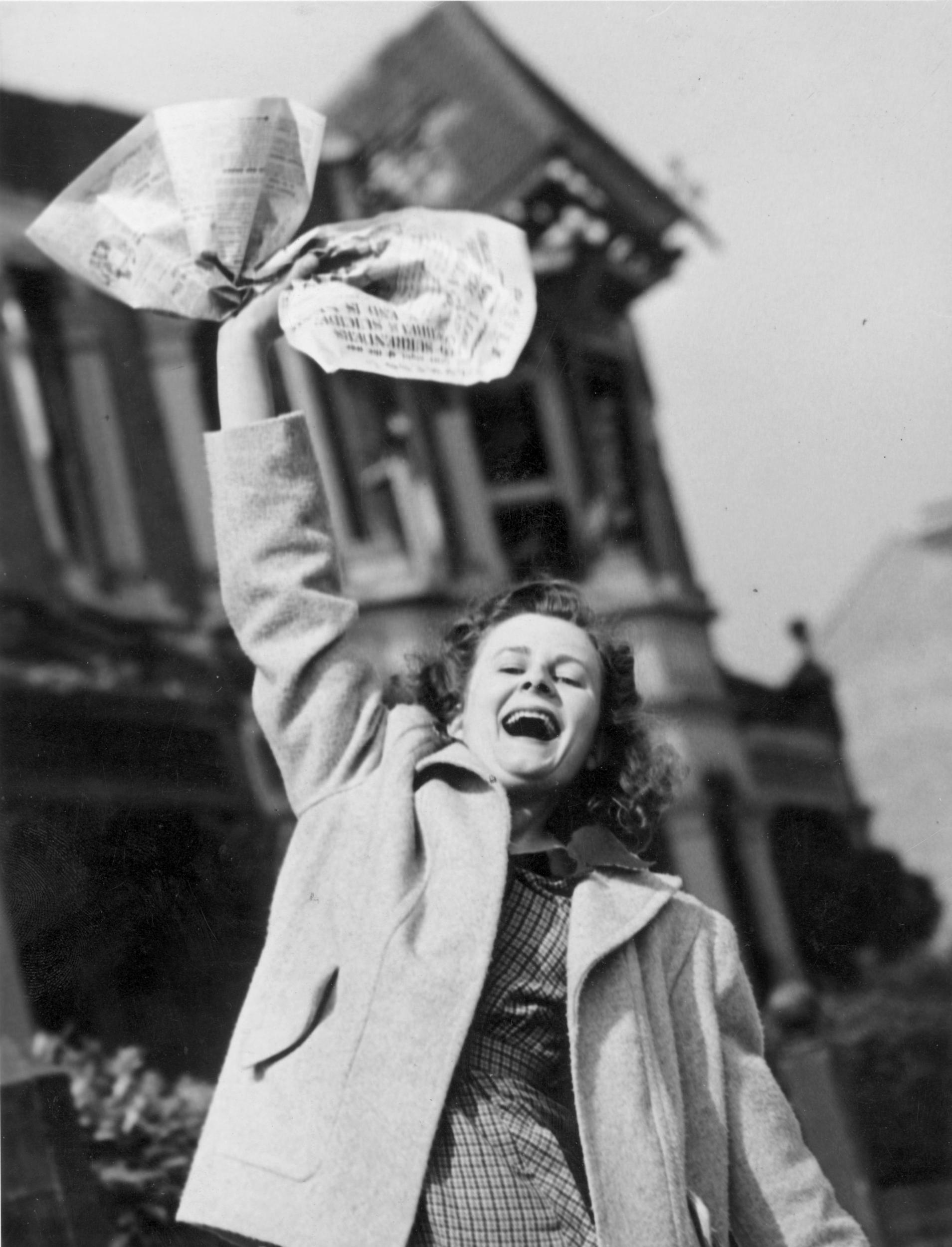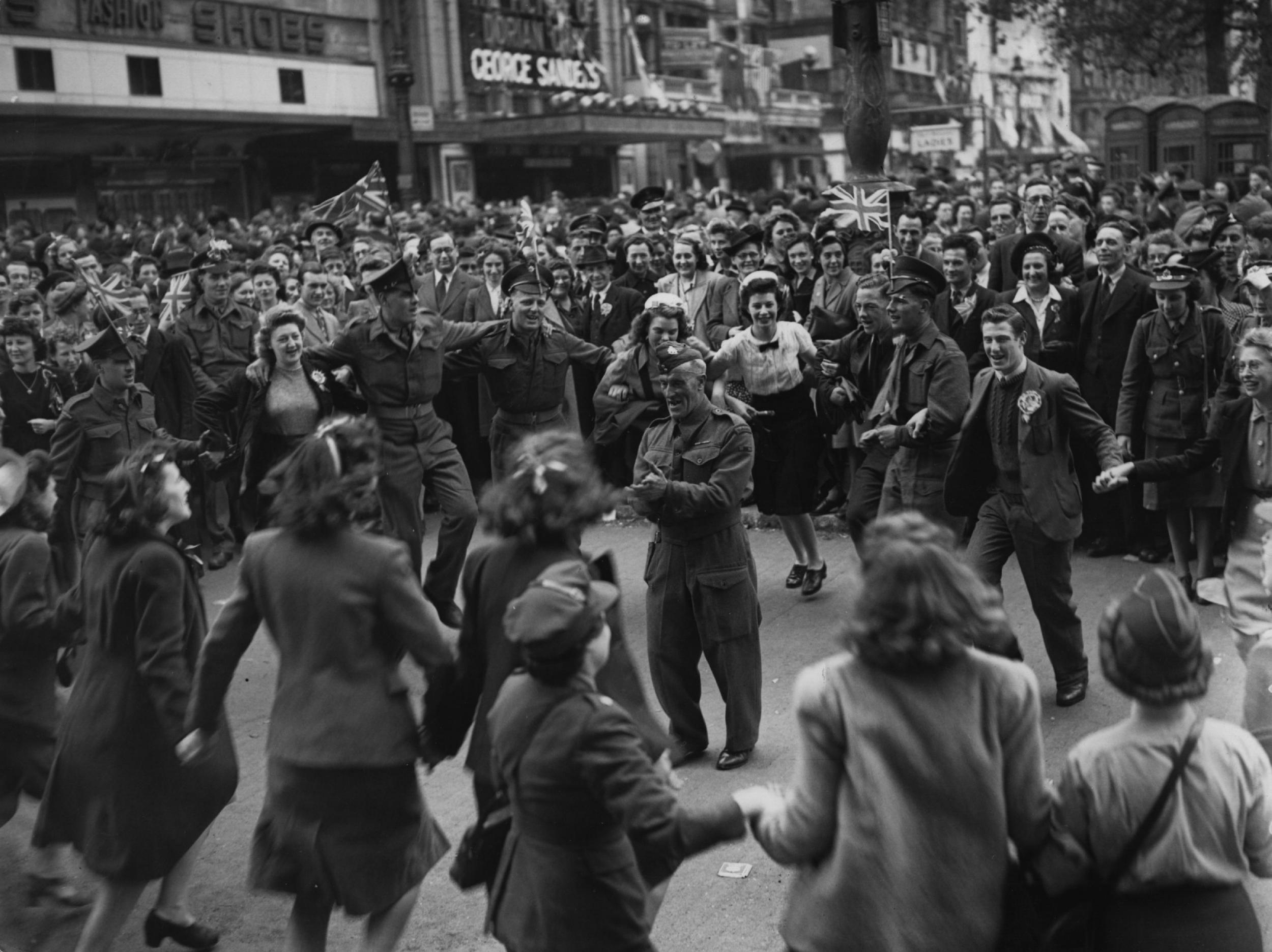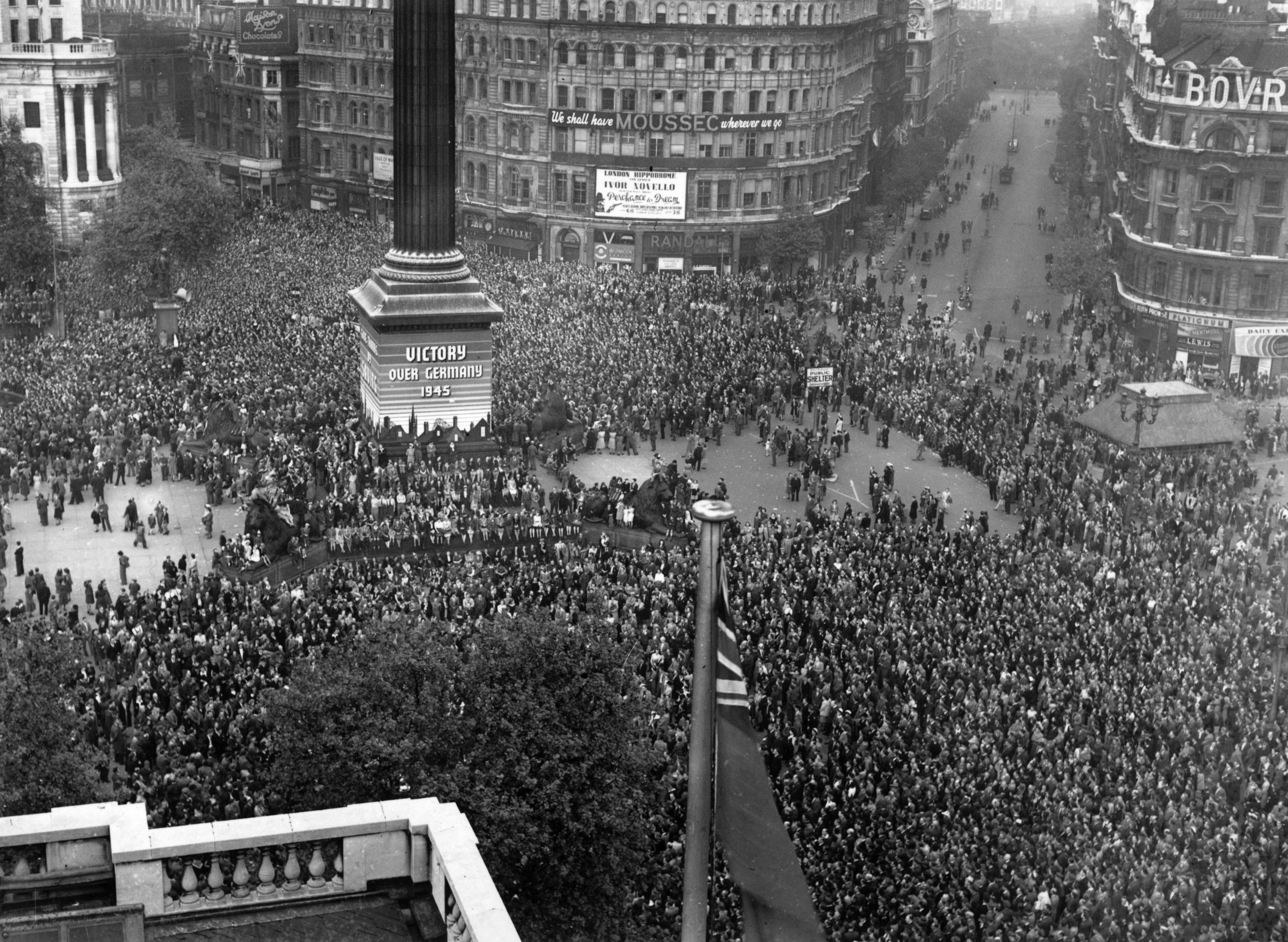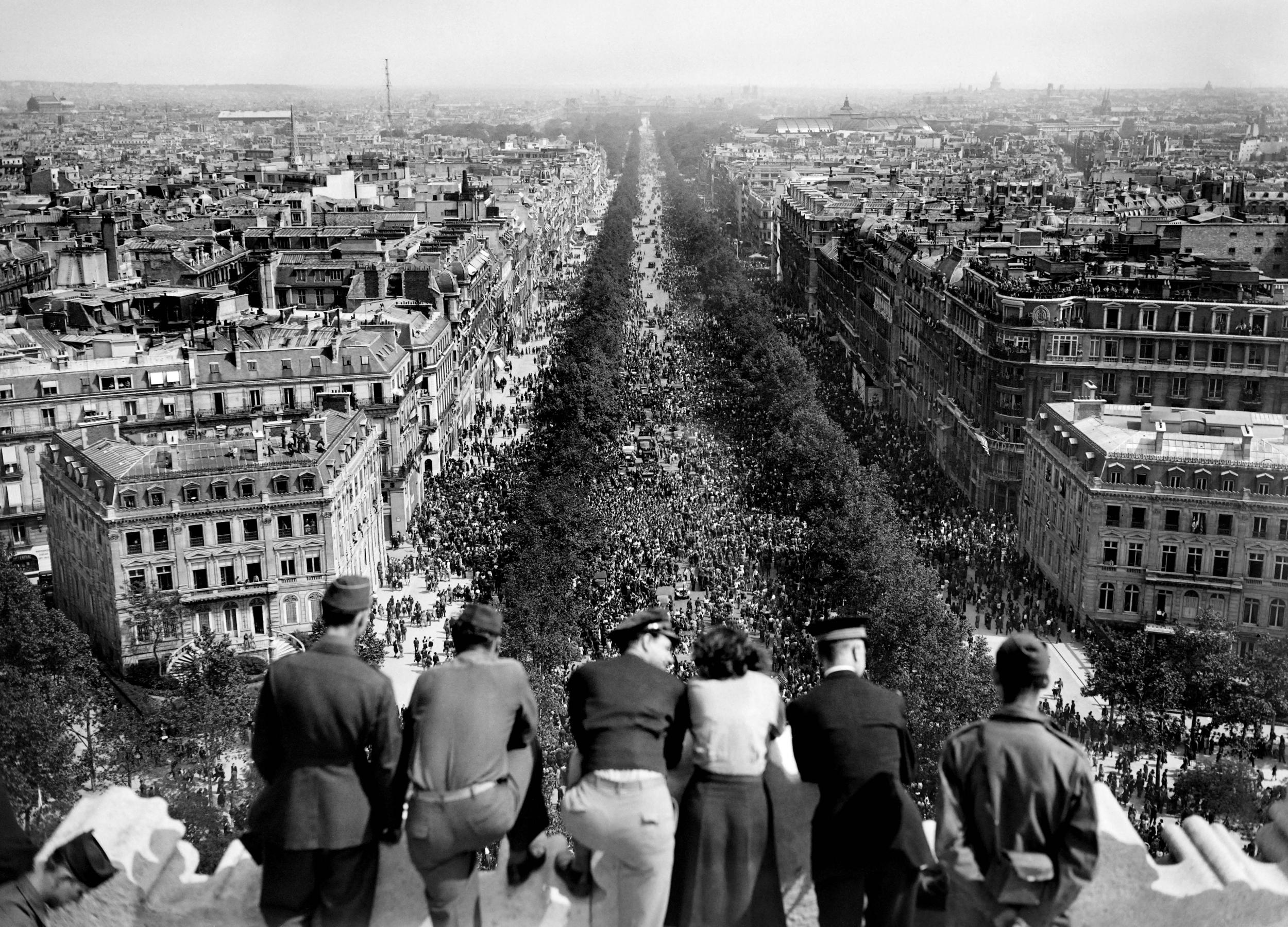The Independent's journalism is supported by our readers. When you purchase through links on our site, we may earn commission.
VE Day: When is it and what does it commemorate?
This year marks the 75th anniversary of Victory in Europe Day
On Friday 8 May, the 75th anniversary of VE Day takes place, coinciding with the early May bank holiday.
The occasion, which is also known as Victory in Europe Day, is regarded as one of the grandest celebrations in British history, during which festivities took place in 1945 to mark the end of the Second World War.
The Queen is due to deliver a special televised address at 9pm on VE Day, the same time that her father, King George VI, announced Nazi Germany’s surrender on the radio.
What does VE Day commemorate?
VE Day commemorates the formal acceptance of Nazi Germany’s surrender by the allied forces at the end of the Second World War.
On 30 April 1945, with Berlin surrounded by opposing forces, the leader of the Nazi party Adolf Hitler died by suicide.
Karl Dönitz succeeded him as the German head of state, going on to negotiate an end to the war with the allied forces, which was made up of nations including Britain, the US, France and Russia.
While VE Day marks the surrender of Nazi Germany after six years of fighting, it did not signify the absolute end of the Second World War.
Some fighting continued around the world, with Japan surrendering in August following the destruction caused by the Hiroshima and Nagasaki atomic bombs and the war coming to an official end on 2 September.
Prime minister Winston Churchill alluded to this fact in his radio address on 3pm on 8 May 1945, stating: “We may allow ourselves a brief period of rejoicing; but let us not forget for a moment the toil and efforts that lie ahead.”

According to English Heritage, the allied forces originally planned on celebrating VE Day on 9 May.
However, news of Germany’s surrender spread at such a fast rate that on 7 May, an announcement was made on BBC radio that the following day would be a national holiday.
The term VE Day had been in circulation since around September 1944, with the allied forces anticipating a victory.
How was Victory in Europe Day celebrated 75 years ago?
In order to ensure members of the public could celebrate VE Day in an appropriate fashion, licensing hours at various establishments were extended on VE Day and dance halls stayed open past their normal closing times.
According to Imperial War Museums, the Board of Trade announced that people would be able to purchase red, white and blue bunting for decorations without having to use ration coupons.

In London, crowds of thousands packed the streets in areas including Trafalgar Square and the Mall leading up to Buckingham Palace, where the King, Queen, Princess Elizabeth and Princess Margaret waved at them from the balcony.
The teenage princesses were even able to join in the festivities, hiding in plain sight as they danced the conga through the Ritz and called at the gates of Buckingham Palace for the King to appear once more.
“We stood outside and shouted, ‘We want the King’... I think it was one of the most memorable nights of my life,” the future Queen Elizabeth II later recollected.

In addition to appearing with the royal family on the balcony of Buckingham Palace, Churchill also made an appearance on the balcony of the Ministry of Health Building in Whitehall, where he delivered an impromptu speech.
The wartime prime minister reportedly shouted to the crowds: “This your victory,” to which they replied: “No, it’s yours!”
When it came time for King George VI to deliver his radio address to the nation, the monarch paid tribute to those who lost their lives in the war.

“Let us remember those who will not come back... let us remember the men in all the services, and the women in all the services, who have laid down their lives,” he said.
“We have come to the end of our tribulation and they are not with us at the moment of our rejoicing.”
In the French capital, thousands of Parisians flocked to the streets to mark the occasion, while in the US, President Harry Truman ordered that flags remain at half mast in tribute to the late President Franklin Roosevelt, who died on 12 April 1945.
In some countries, VE Day took place the following day due to the time difference, such as in New Zealand.
How is the commemorative event being honoured this year?
On Friday 8 May at 9pm, the Queen’s special VE Day address will be broadcast.
The speech will be aired on the television on BBC One, on the radio and across the royal family’s official social media channels.
The BBC will also air a pre-recorded video message from Prince Charles, who will read an extract from his grandfather King George VI’s diary from VE Day describing the day’s events, including the royal family’s Buckingham Palace balcony appearances.
The Queen’s message will form the centrepiece of a televised musical event VE Day 75: The People’s Celebration, which will begin at 8pm.
After the broadcast on BBC One, the public will be invited to take part in a country-wide sing-a-long of Dame Vera Lynn’s wartime anthem “We’ll Meet Again”.
A two-minute silence will be held on the day at 11 am and a broadcast of Churchill’s victory speech will be aired in the afternoon.
Join our commenting forum
Join thought-provoking conversations, follow other Independent readers and see their replies
Comments
Bookmark popover
Removed from bookmarks